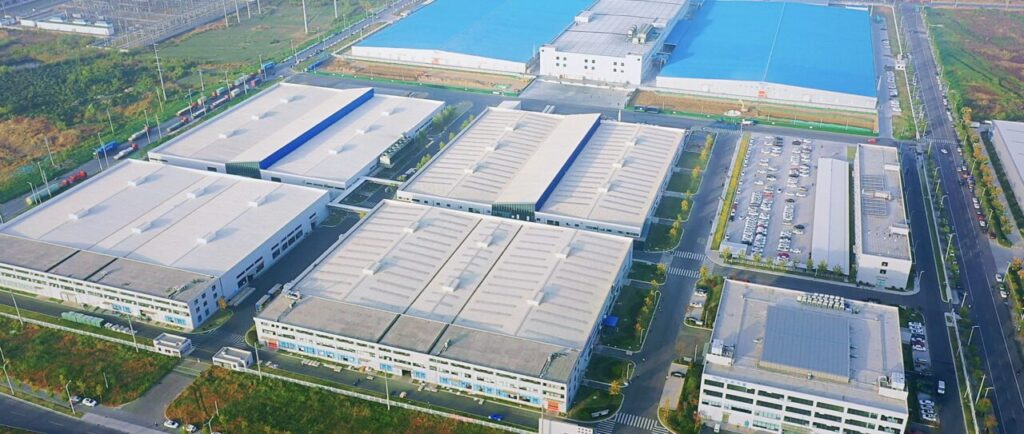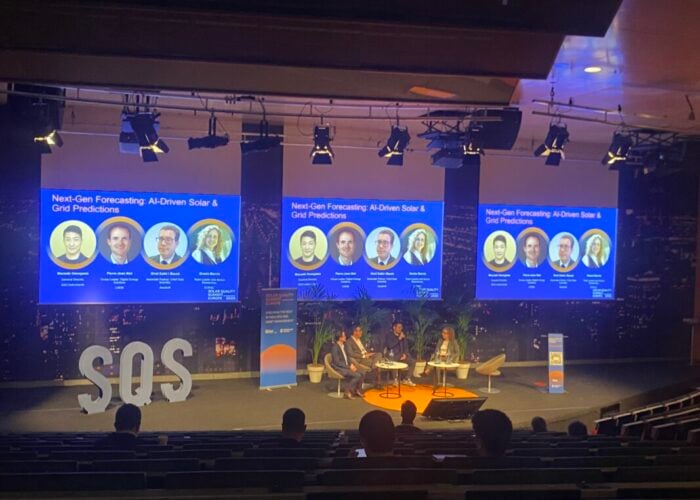
Chinese solar manufacturing giant Trinasolar has become the first company to achieve certification under the Solar Stewardship Initiative (SSI) ESG Standard.
Two of Trinasolar’s manufacturing facilities, in Yancheng Dafeng and Yiwu, eastern China, were audited by German certification body TÜV SÜD to qualify for the ESG Standard.
Try Premium for just $1
- Full premium access for the first month at only $1
- Converts to an annual rate after 30 days unless cancelled
- Cancel anytime during the trial period
Premium Benefits
- Expert industry analysis and interviews
- Digital access to PV Tech Power journal
- Exclusive event discounts
Or get the full Premium subscription right away
Or continue reading this article for free
Published by the SSI in October 2023, the ESG Standard sets requirements for manufacturers around labour practises, carbon emissions, waste management and other ethical and business management concerns. It is distinct from the SSI’s Supply Chain Traceability Standard released last month, which focuses on tracing silicon materials used in solar manufacturing from quartz mining to module assembly.
The standards only certify specific manufacturing locations, meaning that only products produced at Trinasolar’s Yancheng Dafeng and Yiwu factories have been assessed under the scheme.
Trinasolar said that it also conducted pilot assessments for the Supply Chain Traceability Standard at its Yangzhou and Huai’an factories in October 2024.
The SSI was established by trade bodies SolarPower Europe and Solar Energy UK to encourage traceable and ethical supply chains and manufacturing practises in the solar industry. The scheme requires manufacturers to sign up specific manufacturing locations for audits, which will allow them to sell SSI-certified products if they pass.
Labour practises and carbon emissions have become points of concern for the solar manufacturing industry, focusing on the major Chinese manufacturers. Since the 2021 In Broad Daylight report from Sheffield Hallam University, in particular, the solar manufacturing industry has been forced to address allegations of forced and unethical labour practises centred on the Xinjiang Uyghur Autonomous Region of China.
Gonzalo de la Viña, president Europe at Trinasolar, said: “We’re extremely proud to be the first company in our industry to be audited against the SSI’s ESG Standard, with the accolade an endorsement of our steadfast commitment to meeting ESG requirements, and a clear indicator that we are on track to be fully compliant with upcoming European legislation.”
Europe has passed a Forced Labour Ban and a Corporate Sustainability Due Diligence Directive, which will introduce ethical criteria for companies shipping into the bloc, including solar manufacturers. Both of these pieces of legislation will come into force in 2027. The SSI said its standards are “aligned” with the requirements of this EU legislation.
As an industry-led scheme, the SSI cannot impose requirements on manufacturers and relies on voluntary auditing. Critics have said that this methodology could allow companies to operate bifurcated supply chains, where certain facilities produce “ethical” products and others do not. The same critics have also pointed out that the scheme would not be able to assess practices in regions where outside access is restricted.
In comments to PV Tech, Alexia Ruvoletto, head of the secretariat at the SSI, said that the scheme would not certify a company found to be violating its terms at a facility which had not been audited.
In a separate statement, the SSI said: “The planned ESG assessments from Q4 2024 through Q1 2025 collectively represent an annual module production capacity of 100GW and an annual cell production capacity of 20GW.”






